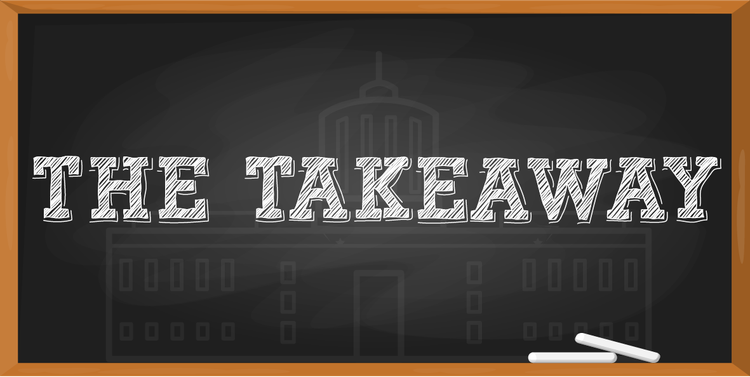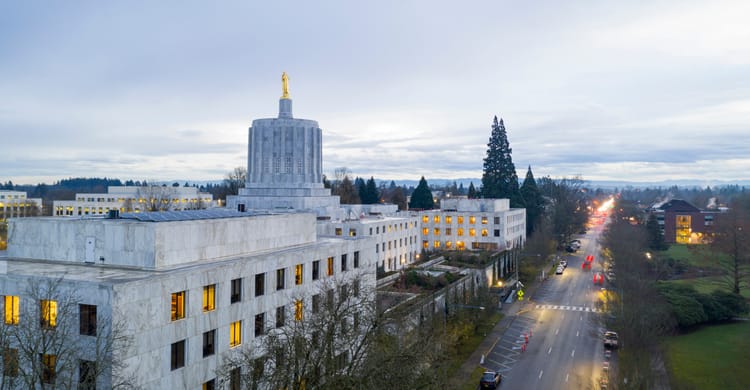Transportation Plan Roils Final Week of Oregon Session

The long-running theme of Oregon’s 2025 legislative session lacking a signature policy — and, at times, a clear direction — finally shifted last week. But with only seven days remaining until the state constitution requires lawmakers to adjourn, the session’s final stretch presents one of its most significant challenges — ramping up while winding down. Unlike previous sessions marked by partisan standoffs and minority walkouts, this year’s finale is being defined by fractures within the majority party.
Last Tuesday, the committee tasked with crafting a transportation funding plan unveiled a proposed amendment outlining $15.5 billion in new taxes and fees over the next decade, representing the single largest tax increase in state history once fully implemented. During a hearing to preview the amendment, Senate Finance & Revenue Chair Mark Meek (D-Gladstone) sharply criticized the package, declaring its current form was something he could not support.
For much of the week, it was unclear whether Democrats could secure enough votes from within their own ranks to move the plan out of committee, let alone pass it on the floor. On Thursday, a scheduled committee meeting was abruptly canceled. And on Friday, minutes before the committee was slated to meet, Senate President Rob Wagner (D-Lake Oswego) removed Meek from the committee and appointed himself in his place, ensuring enough votes to advance the bill. While certainly not unprecedented, it is highly unusual for a presiding officer to replace a lieutenant, especially on a topic as consequential and technical as tax policy.
Friday’s committee vote moved the package forward along party lines, but whether it brought the legislature closer to a solution or simply bought more time remains unclear. Democrats hold a supermajority in both legislative chambers — 36 representatives and 18 senators — but to raise taxes, they must vote unanimously as a caucus. Without a bipartisan package or a unified caucus, the transportation package is stuck without a roadmap forward.
Oregon has a long history of bipartisan cooperation on transportation funding, in part due to the ever-present threat of voter referenda on tax packages. Earlier in the session, several Republicans expressed a willingness to cross the aisle and craft a bipartisan package. Those talks fell apart, however, after progressive members and interest groups insisted the package boost climate and transit investments with more aggressive funding mechanisms, including a new targeted sales tax on higher-value vehicles.
For months leading up to this session, the transportation committee toured the state and regularly messaged their work as “back to basics,” focusing on plowing snow, filling potholes, and reinforcing bridges, and not new projects common for these tax and spending initiatives. (Notably, the committee co-opted a recent political slogan used by Republicans aimed at redirecting government toward essential services.) While attention throughout the session centered on whether some Republicans would cut deals, the real battle unfolded within the Democratic Party.
As lawmakers head into the final week, the session’s politics are gravitating toward the transportation funding proposal. As of this morning, it seemed clear the legislation was heading to the floor without the necessary votes to pass. This afternoon, the House referred the bill back to committee, a clear signal of coming amendments. If there was any hope of the legislature adjourning early into the week, it is replaced with the dread of issues that could reawaken as the legislature works its way through the process. With just days left, the legislature’s marquee proposal has become a case study in gridlock, proving once again that even with a full tank and a supermajority, you can still stall in the middle of the road.
Beyond Transportation
Setting aside the transportation policy and politics that defined last week, lawmakers still have their work cut out for them on other issues. The final state budget and omnibus tax bills have yet to be unveiled. There are also controversial measures slowly moving through the legislature as lawmakers spend long days trying to get bills across the finish line. Other than the transportation funding package, the budget and tax bills become a focal point as they stand as one of the last opportunities to curry votes from holdout members on party priorities. For a session without a focus, we are very much watching the legislature try to finish with the blinders on. Anything can happen.





